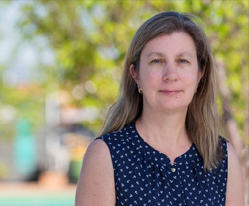
This is a very interesting question and one that we have to deal with from time to time in our firm.
The question of capacity can arise in all sorts of situations including advanced old age, intellectual disability and physical and mental illness. The starting point is that all adults are assumed to have capacity and just because someone has a particular diagnosis does not necessarily mean they lack the capacity to give instructions or make their own decisions. The ability to make the decision must be assessed at the time the instructions are being given.
When I meet with a client I need to assess their decision-making capacity. This is relevant not only in relation to taking instructions for a Will, but in any legal matters.
It might be relevant to consider the time of day as some clients are better able to concentrate and process information at different times. Is the client tired, upset or taking medication? Any of these things could impact on their capacity to give instructions.
In general terms “capacity” to make a particular decision depends on the following:
- Knowing the facts involved
- Understanding the options and choices available
- Weighing up the consequences of the choices and understanding how they will be affected by those choices
- Being able to communicate their decision.
In terms of making a Will, the client must have a good general understanding of their financial situation and the assets that will form their estate. Whilst it is not necessary to know exactly how much each individual asset is worth, the person making the Will should have a sound knowledge of the nature of their assets and their worth.
The Will maker should also be able to give appropriate details for their potential beneficiaries. They should be able to identify any people for whom they have a financial responsibility and be able to explain the provision that is being made for any financial dependants.
The Will maker should be able to explain any changes they are making to an existing Will and be able to understand the consequences of those changes. For example, if a family member is to be excluded, the Will maker should be able to explain why. In those circumstances I would canvas the possibility of an Estate challenge and point out the consequences of that. But in the end it is not up to me to judge the decision if it is based on sound reasoning. Just because we don’t agree with a particular decision doesn’t mean the person didn’t have capacity to make it.
As solicitors, we need to be satisfied that the Will is being made freely and without coercion or undue influences being exercised by other family members or friends. For this reason we will ask to meet with the Will maker alone, so that they can provide instructions without interference.
If, when taking instructions for a Will, it transpires that the capacity of the Will maker may be questioned at a later date, we will ask the Will makers permission to contact their treating doctor to confirm capacity. Sometimes this will involve specific investigation of cognitive function, but usually if the treating doctor knows the person well a certificate of capacity can be provided without any additional testing.
Sometimes, unfortunately, it is too late to make a new Will as the person has through illness or injury lost capacity. For this reason, Wills should be regularly reviewed and changes made when necessary rather than just assuming that you will be able to make the change at a later date.






